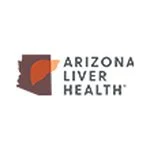Liver Cirrhosis
What is Liver Cirrhosis?
Cirrhosis is a condition where the liver becomes heavily scarred (or fibrotic); this can occur as a result of alcohol, viral hepatitis, fatty liver disease, or any other type of chronic liver disease.
What are the Symptoms?
Many patients with cirrhosis have no associated symptoms. This is why cirrhosis is often diagnosed when the late-stage complications of advanced liver disease develop. Fatigue is common with cirrhosis. When patients begin to develop advanced cirrhosis, they may have evidence of muscle loss, jaundice, edema, or fluid build-up in the abdomen called ascites.
Other complications include portal hypertension (increased blood pressure inside the liver), esophageal varices (large varicose veins that can bleed into the stomach), and hepatic encephalopathy (confusion from the inability of the liver to remove toxins from the blood).
How is it Diagnosed and Treated?
Cirrhosis can sometimes be diagnosed by imaging tests (such as a CT scan, ultrasound, or MRI) based on a “nodular” or shrunken appearance to the liver.
Additionally, a fibroscan may provide valuable information about liver disease stage and if cirrhosis is present. If there is fluid in the abdomen (ascites), or an enlarged spleen, these can also be clues to the presence of cirrhosis. Additionally, cirrhosis can also be diagnosed by liver biopsy, although this is often not necessary.
Cirrhosis may not be reversible, but the progression of liver scarring maybe slowed or halted with appropriate treatment.
Upper endoscopies may be prescribed for screening purposes. The exact frequency will be determined by the gastroenterologist performing endoscopies.
Can it be prevented?
LIVER CANCER SCREENING
How do I get screened for liver cancer?
The most common form of liver cancer in patients with cirrhosis is hepatocellular carcinoma (HCC). This cancer can sometimes be diagnosed in patients without cirrhosis but is most common in patients with cirrhosis and chronic liver disease.
Your risk of developing HCC increases the longer you have cirrhosis. Screening for HCC involves a blood test called an alpha-fetoprotein (AFP), as well as some form of liver imaging (ultrasound, CT or MRI). Surveillance can be done every 6-12 months at a minimum. If a lesion is seen, this may prompt additional testing such as detailed imaging, or a biopsy in some cases.
What vaccines do I need?
• Patients with chronic liver disease should be immunized against hepatitis A virus (HAV) and hepatitis B virus (HBV).
• The inactivated (injected) influenza vaccine is recommended annually.
• The Pneumovax (pneumonia) vaccine is also recommended for adults over age 60.
• Other vaccines should be discussed with your provider in clinic.

